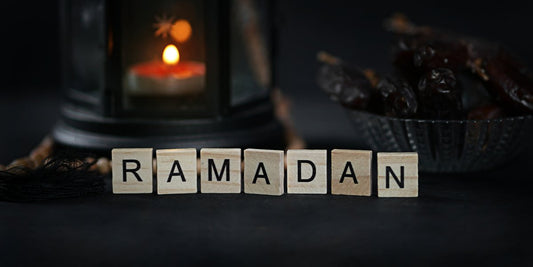
In a world rich with cultural diversity, the nuances of culinary traditions offer a window into the unique practices and beliefs of various communities. Among these culinary customs, two major dietary systems stand out: Halal and Kosher. Rooted deeply in religious teachings, these dietary laws govern the consumption of meat in Islam and Judaism respectively.
Picture this: centuries ago, in bustling bazaars and lively villages, the sights and sounds of daily life mingled with the echoes of prayers and blessings spoken over pots and pans. "Bismillah," translated as "in the name of Allah," was, and is a simple yet profound expression used before various actions, including eating, to express gratitude and seek blessings.
In Islam, the concept of Halal—meaning "permissible" or "lawful"—governed the consumption of food, including meat. The act of slaughtering an animal, known as Zabiha, was more than just a culinary ritual; it was a sacred duty, performed with respect for both the animal and Islamic teachings.
Similarly, in the ancient traditions of Judaism, the laws of Kashrut dictated the preparation and consumption of food, including meat. Kosher, meaning "fit" or "proper," outlined strict guidelines for slaughtering animals, emphasizing compassion, cleanliness, and adherence to religious principles.
Over the centuries, these culinary customs have evolved alongside the communities that continue to embrace them, adapting to changing landscapes and more complex cultural dynamics.
In understanding the differences between Halal and Kosher dietary practices, you can satisfy both your culinary curiosity, and it is also essential knowledge in order to respect and appreciate cultural and religious diversity.

Understanding Halal Meat:
Derived from Islamic principles outlined in the Quran and Hadith, Halal refers to what is permissible or lawful in Islam. Halal meat is prepared following specific guidelines set forth by Islamic law. These guidelines dictate the method of slaughter, emphasizing compassion, cleanliness, and respect for the animal's welfare.
The key aspect of Halal meat production is the ritual slaughter, known as "Zabiha." During Zabiha, a Muslim butcher, known as a "Zabiha-certified" individual, recites a dedication to God, known as the Tasmiyah or Shahada, before swiftly slaughtering the animal by cutting its throat with a sharp knife. This process ensures the swift loss of blood, believed to be more humane and hygienic, as it allows the removal of toxins from the animal's body.
Understanding Kosher Meat:
Similarly, Kosher dietary laws, rooted in Jewish scripture, mandate the preparation and consumption of food according to Jewish tradition. Kosher meat adheres to a strict set of guidelines outlined in the Torah and Talmud. The process of preparing Kosher meat involves specific rituals overseen by a trained individual known as a "Shochet."
In Kosher slaughter, the animal is slaughtered swiftly with a sharp knife while reciting a blessing. Additionally, the meat must come from specific animals deemed kosher, such as cows, sheep, and poultry. Furthermore, the meat must undergo a process of salting and soaking to remove any remaining blood, as consuming blood is strictly prohibited in Jewish law.
Key Differences between Halal and Kosher Meat:
Slaughter Method: While both Halal and Kosher require swift and humane slaughter, there are differences in the accompanying rituals and prayers. Halal slaughter involves reciting a dedication to Allah, whereas Kosher slaughter involves reciting a blessing specific to Jewish tradition.
Animal Selection: Halal permits the consumption of a broader range of animals compared to Kosher. For example, Halal allows the consumption of camel meat, while Kosher does not.
Blood Removal: While both traditions emphasize the removal of blood from the meat, the methods differ slightly. Halal meat relies on the natural bleeding process after slaughter, whereas Kosher meat undergoes a salting and soaking process to remove blood.
Certification: Both Halal and Kosher meats often bear certification symbols to indicate compliance with religious dietary laws. These symbols provide assurance to consumers seeking products that adhere to their respective religious requirements.

Moving Forward
In essence, while Halal and Kosher meat share common principles of humane slaughter and dietary restrictions, they stem from distinct religious traditions with unique rituals and guidelines. Understanding the differences between these dietary practices not only fosters appreciation for cultural diversity but also enables individuals to make informed choices aligning with their religious beliefs.
Whether seeking Halal meat for adherence to Islamic dietary laws or Kosher meat for observance of Jewish dietary traditions, consumers can now easily access these products through various ways, including grocery delivery services and online deli meats. If you choose to adhere to Islamic principles and eat Halal, it is essential to support establishments that are committed to providing access to quality Halal products for individuals seeking to adhere to Islamic dietary guidelines.
So, next time you're shopping for Halal meat and groceries, remember to explore our wide range of Halal products at HWD such as crescent halal chicken, amish whole chicken and more, ranging from chicken to beef, goat and lamb. HWD is where you can experience the richness of Halal cuisine while honoring religious traditions. Enjoying clean, high quality delicious meals have never been easier than with Halal meat delivery online.




